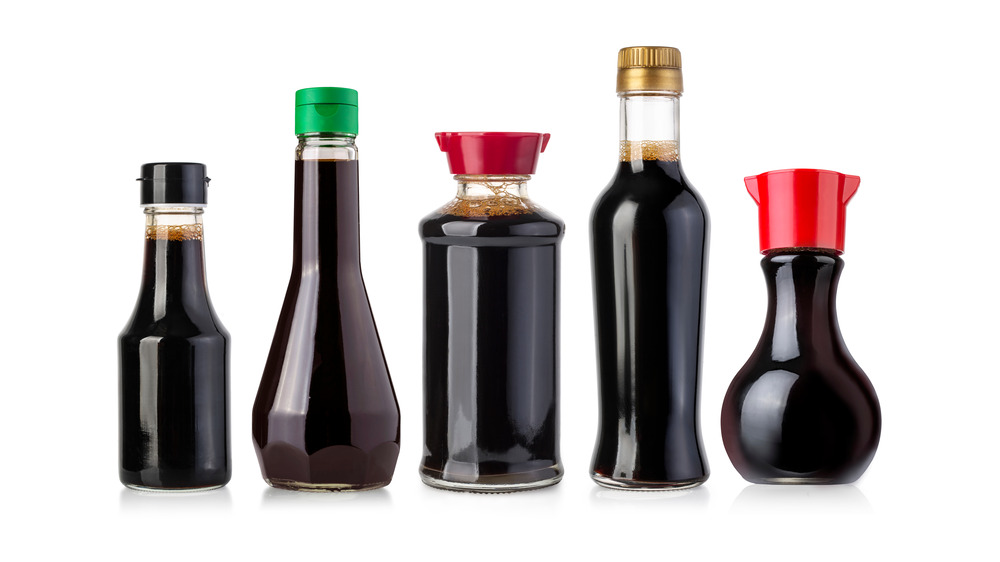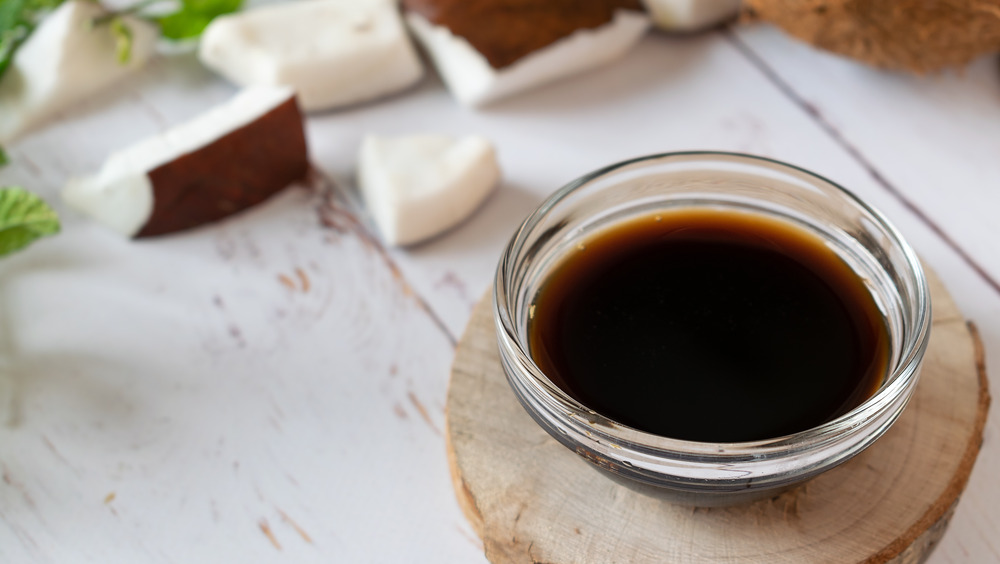The Sneaky Ingredient You Didn't Realize Was In Your Soy Sauce
With a name like soy sauce, you'd be forgiven for thinking that soy would be the first ingredient. And you'd be wrong in many cases. In fact, the first ingredient in a lot of soy sauces is actually wheat (via Gluten-Free Living). Yikes! Turns out, most soy sauces contain a lot of wheat, and therefore, gluten. Sometimes the ingredients list will have wheat listed as a main ingredient. Other times though, it might be hidden as hydrolyzed vegetable protein, which could still contain gluten (via Food Network).
If you're one of the growing numbers of people worldwide trying to limit your gluten consumption or to go gluten-free entirely, either due to celiac disease, gluten-intolerance, gluten-sensitivity, or otherwise, you need to be careful when purchasing or consuming soy sauce.
So what are you supposed to do the next time you're grabbing some sushi or making a stir-fry or even some scrambled eggs? Luckily, there are a number of great substitutes for soy sauce, including several that are gluten-free.
What you can use instead of soy sauce
One great alternative is tamari. Tamari is a Japanese-style soy sauce that is traditionally made from fermented miso paste, instead of wheat. The taste is slightly different: The Kitchn describes tamari as "more balanced and less salty" than soy sauce. If you're on a strict gluten-free diet, always check the label to make sure it truly is gluten-free, as some tamari can be made with a tiny bit of wheat.
Bragg Liquid Aminos is another alternative, and one that is completely gluten-free. Made from non-GMO soybeans and purified water, it has a taste "similar to soy sauce but much milder and with a tiny bit of sweetness to it" (via The Spruce Eats). It also offers a large number of essential and non-essential amino acids.
For a non-soy alternative, look for coconut aminos. Despite being made from coconut palm sap, coconut aminos doesn't actually taste like coconut and instead has a less-rich, "milder, sweeter flavor" than soy sauce (via Healthline). Coconut aminos also contain less than one-third the sodium of soy sauce (via Women's Health). Heart-healthy and still full of umami goodness? Score!

